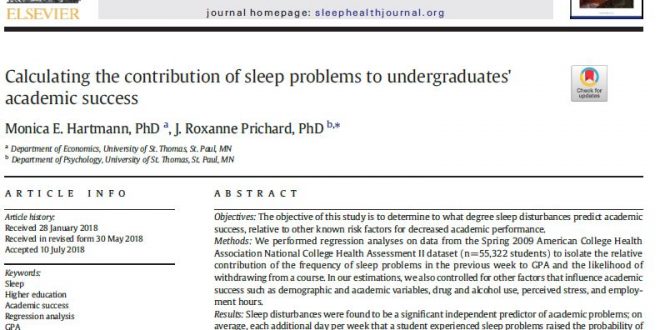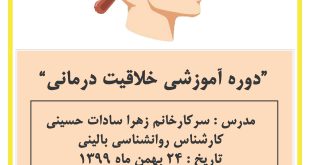محاسبه سهم مشکلات خواب در موفقیت تحصیلی دانشجویان مقطع کارشناسی
Objectives
The objective of this study is to determine to what degree sleep disturbances predict academic success, relative to other known risk factors for decreased academic performance.
Methods
We performed regression analyses on data from the Spring 2009 American College Health Association National College Health Assessment II dataset (n=55,322 students) to isolate the relative contribution of the frequency of sleep problems in the previous week to GPA and the likelihood of withdrawing from a course. In our estimations, we also controlled for other factors that influence academic success such as demographic and academic variables, drug and alcohol use, perceived stress, and employment hours.
Results
Sleep disturbances were found to be a significant independent predictor of academic problems; on average, each additional day per week that a student experienced sleep problems raised the probability of dropping a course by 10% and lowered the cumulative GPA by 0.02. Factors such as stress, binge drinking, marijuana and other illicit drug use, which typically receive more attention by university administrators, had similar or relatively smaller negative associations with academic success as compared to disturbed sleep. Approximately three quarters of students surveyed reported never receiving information about sleep from their university.
Conclusions
Sleep education represents an underutilized opportunity for universities to maximize retention rates and academic success.
نویسندگان: Monica E.HartmannPhD, J. RoxannePrichardPhD
ژورنال: Sleep Health
سال انتشار: 2018
دانلود مقاله:





